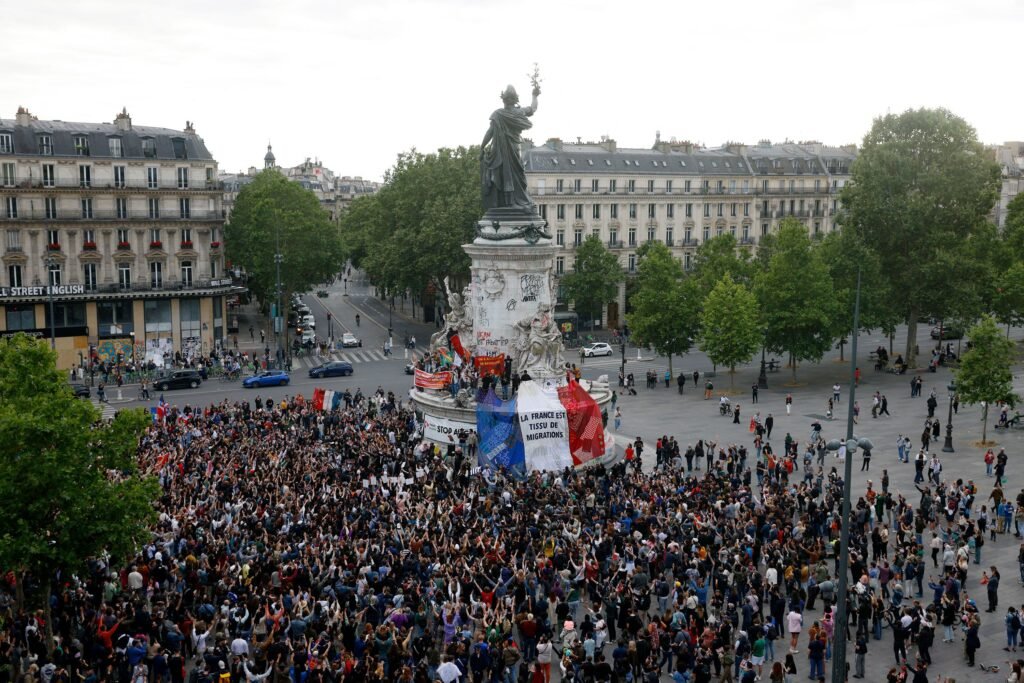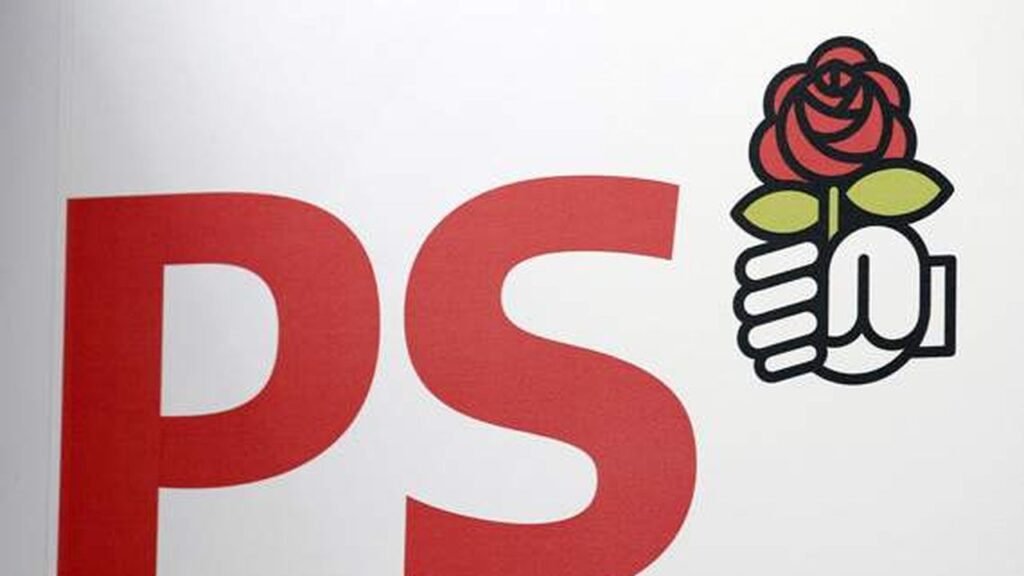France is once again at a political crossroads, as its ruling class scrambles to maintain control amid economic stagnation and growing discontent. With the support of both the Socialist Party (PS) and the far-right National Rally (RN), Prime Minister François Bayrou has succeeded where his predecessor, Michel Barnier, failed—securing parliamentary approval for a budget.
However, this so-called victory is anything but a win for the French working class. The budget represents yet another round of severe austerity measures, shifting the burden of economic crisis onto the oppressed and exploited while preserving the wealth and privileges of the country’s ruling elite. The fact that both the center-left PS and the far-right RN supported it underscores a central truth: despite their ideological differences, when it comes to protecting capitalism, France’s mainstream parties are willing to cooperate.
As the government presents this as a move for political stability, workers, unions, and the broader left must recognize it for what it is: a concerted effort to suppress class struggle and maintain the dominance of capital over labor.
Austerity in Disguise: The Reality of Bayrou’s Budget
While the PS and RN claim to have secured “concessions” from the government, these changes are little more than cosmetic adjustments. In reality, Bayrou’s budget mirrors Barnier’s earlier proposal—it simply redistributes the economic burden differently, shifting attacks on one section of workers to another.
For instance, one of the most controversial provisions, cuts to sick leave for civil servants, has been modified but not removed. Under the new terms, civil servants on sick leave will still face a 10% pay cut. This is part of a broader assault on public sector workers, who are being forced to bear the costs of an economic crisis they did not create.

Other key elements of the budget include:
- Reduction in public spending, particularly in social services and healthcare.
- Increased tax benefits for corporations and the wealthy, ensuring that the capitalist class continues to extract profits.
- Cuts to pensions and welfare programs, further undermining economic security for millions of working-class people.
The justification given by political elites? Stability.

The Illusion of Political Stability
The PS and RN leadership argue that their support for the budget was necessary to maintain political continuity and avoid an extended period of crisis. In reality, their actions have only stabilized the position of France’s ruling class, ensuring that the economic and social burdens continue to fall on workers rather than on those who profit from exploitation.
The French bourgeoisie, too, has welcomed this supposed stability—so long as it guarantees that their economic interests remain protected. This is, after all, a government of the rich, supported by parties that claim to represent opposite ends of the political spectrum but ultimately serve the same economic masters.

The Role of Trade Union Leaders: Compliance Instead of Resistance
Beyond parliamentary politics, France’s trade union leadership has played a critical role in upholding the government’s authority. Instead of mobilizing workers in a genuine fight against austerity, union leaders have chosen to cooperate with the government, ensuring that protests remain controlled and that opposition never becomes a real threat to the status quo.
This is particularly evident in the position of Marylise Léon, General Secretary of the French Democratic Confederation of Labour (CFDT). In a recent interview, she admitted that the budget was “socially unfair” but insisted that political stability was more important, stating:
“It’s a good thing that there is political continuity… There are huge expectations in the working world.”
Her statement follows a clear pattern of bureaucratic trade unionism, where leaders acknowledge workers’ grievances but refuse to take decisive action. Similarly, the leadership of the General Confederation of Labour (CGT) has failed to put forward a coherent strategy for resistance. While their recent statement called for increased struggles, it provided no concrete plans for mass mobilization. Instead, the CGT leadership has chosen to participate in government-led discussions on pension reform—a symbolic gesture that will yield no real benefits for workers.
If trade unions are to be an effective force for change, they must break with this bureaucratic passivity and commit to real, militant resistance against austerity.


The Limits of La France Insoumise (FI)
On the left, Jean-Luc Mélenchon’s La France Insoumise (FI) has been vocal in condemning the government, denouncing the “active collaboration” of establishment politicians and union bureaucracies. However, FI’s own political strategy has significant limitations.
One major issue is its continued alliance with the Socialist Party (PS). The PS, which played a crucial role in supporting Bayrou’s budget, owes its survival to FI. In both the 2022 and 2024 elections, Mélenchon’s party formed electoral coalitions with the PS, preventing its total collapse. Had FI refused to prop up the PS, the party would have likely disappeared from national politics altogether.
This is a classic example of left reformism’s dependency on right reformism—FI refuses to break decisively with the capitalist system, relying instead on alliances with a party that has repeatedly betrayed the working class.
Moreover, FI’s focus remains overwhelmingly on parliamentary politics, rather than mass action. While Mélenchon correctly criticizes the influence of trade union bureaucrats, FI’s leaders have yet to put forward a concrete strategy for mobilizing workers outside of electoral cycles.
The party’s primary focus now is on municipal elections in 2026, rather than organizing a mass resistance movement against the government’s policies. This parliamentary fixation fails to address the urgency of the current moment.
If the FI leadership were serious about fighting for workers, they would stop chasing electoral alliances with the PS and instead focus on mass mobilization—building strikes, organizing workplace resistance, and directly confronting the government’s austerity measures.
The Revolutionary Alternative
As it stands, no mainstream party or trade union leadership in France is offering a serious alternative to capitalist austerity. While FI remains the most popular left-wing force, its refusal to break with reformism limits its potential. The working class needs a new, revolutionary strategy—one that does not seek to reform capitalism but overthrow it entirely.
This means:
- Building independent workers’ organizations capable of fighting outside of parliament.
- Rejecting cooperation with the PS and other pro-capitalist forces that have repeatedly betrayed the working class.
- Escalating mass mobilizations through general strikes, workplace occupations, and community organizing.
- Challenging the union leadership’s passivity and replacing bureaucratic leaders with militant, class-conscious activists.
- Advancing a socialist alternative—one that expropriates corporate wealth, nationalizes key industries under workers’ control, and redistributes economic power.
At this stage, France’s revolutionary forces may still be small. But history has shown that when the working class moves, it can change everything. The lessons of 1968 remain as relevant as ever—without revolutionary leadership, moments of mass mobilization can be co-opted, redirected, or crushed. For those who recognize the need for a genuine, systemic break with capitalism, the task now is to organize, educate, and prepare for future struggles. The ruling class has chosen “stability” at the cost of workers’ living conditions. The working class must respond with a strategy that doesn’t just resist but seeks to overturn the system entirely.
The Choice Ahead
The approval of Bayrou’s budget, supported by both the Socialist Party and the National Rally, is a stark reminder that political stability in a capitalist system always comes at the expense of the working class. The question now is: Will the French left, trade unions, and working-class movements finally break with reformist illusions and fight for real change? Or will they continue down the path of parliamentary compromises and bureaucratic inertia?
The answer will determine not only the future of this government—but the future of France itself.


